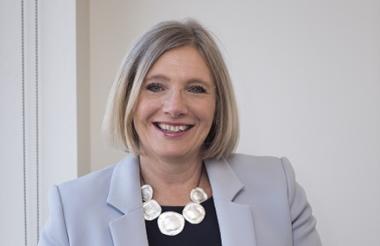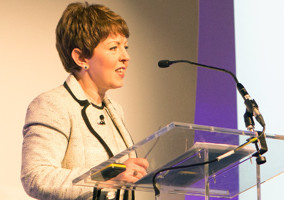The Charity Commission’s chief executive has said the regulator wants to make it a legal requirement for charities to report serious incidents to them.
Helen Stephenson was giving oral evidence yesterday to the International Aid Committee’s inquiry into sexual exploitation in the aid sector alongside the regulator’s deputy chief executive, David Holdsworth, and its director of investigations and enforcement, Michelle Russell.
Stephenson said that at the moment the serious incident reporting programme “has been voluntary”, and that while “we like to encourage more and more charities to comply”, the Commission “can’t enforce it”.
Stephenson suggested that this change could help improve public trust in charities because it will make them more transparent and that “the more charities are transparent more they are able to increase public trust and confidence”.
Russell said that there has been some “resistance” from charities in the past, who are concerned about the burden and “whether they need to report allegations”, but that “our responsibility is to hold charities to account about how they deal with allegations as well as proven instances.”
Charging charities back on the table
Stephenson also addressed the proposal for some charities to have to pay a fee for regulation, saying that she wants to “have that conversation”.
The Commission came close to launching a formal consultation on its funding last year but did not get the final go-ahead needed from government.
Earlier this year it appeared that the idea had been put on the backburner, when the Commission's new chair, Baroness Tina Stowell, said in her first major speech that a consultation was likely to wait until after the Commission had developed its new strategic plan.
But yesterday, Stephenson stressed that the Commission is under financial pressure. She said that while it is good that the government provided an additional £5m to deal with the increase in the regulator's caseload, this came “before the safeguarding issue arose”. This has led to a significant increase in charities reporting serious incidents, with over 1,000 new reports in a four-month window.
Stephenson said that the Commission needs to have “stability”, and to be able to do “long-term planning”. She reminded MPs that “most other regulators do charge the people they regulate”.
“That is a discussion that we should have,” she said.
Later in the session she added that the regulator is “doing the best to live within our resource”, but that it was difficult to parachute in help as the expertise within the Commission is so specialist.
“We have expert staff,” she said, and this is “not something you can just teach at Charity Commission school”.
More support
With regard to supporting charities, Holdsworth said that the Commission is doing what it can with its limited resources – such as producing a trustee welcome pack and increasing the opening times for its telephone line.
He called on charity umbrella bodies to step forward. “There is a need for greater support for trustees and as much as we would like to do more, we are limited by our resource,” he said.
Stephenson also urged the sector to “step up”.
She said the Commission had been “very clear with the sector” on the importance of safeguarding ahead of the media scandals this year, and that what “we need to see is leadership” and to develop a culture that embeds safeguarding.
Stephenson also revealed that the Commission is looking at ways to make it “easier for whistleblowers to come to us”.
Russell added that charites were already making “some progress” prior to February this year, when the Times began reporting concerns about the behaviour of former Oxfam staff in Haiti. However, she said that it is only really since then that there has been an “uptick in both reporting and the engagement that we have had with charities”.
Today NCVO published a draft code of ethics for the sector and Acevo published a report on leading safe cultures in charities.
|
Related articles












